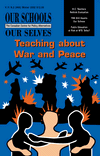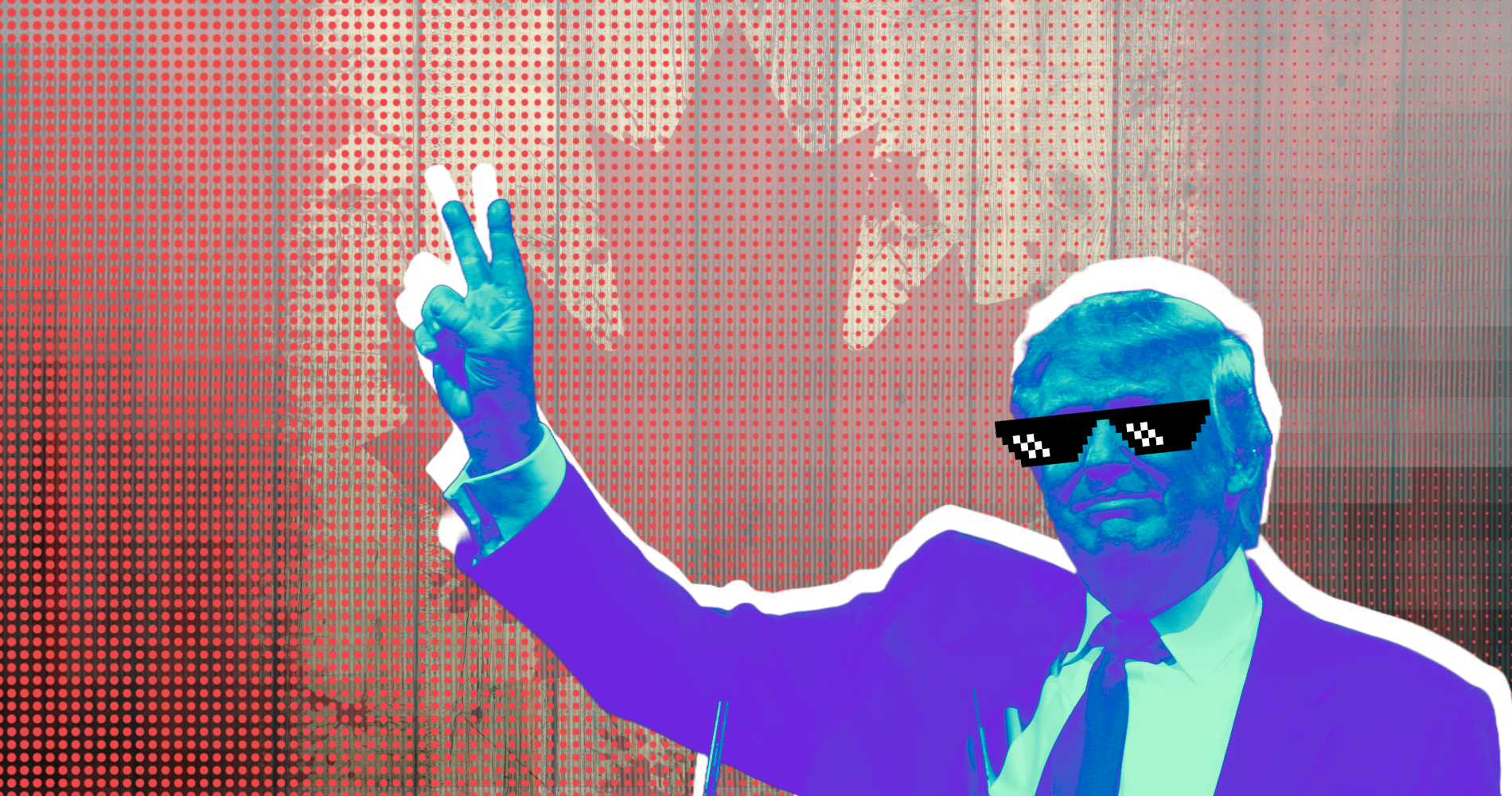September 11th and My ESL Class
 September 11th has marked us all. Many historians have used World War I to mark the beginning of the twentieth century. Perhaps future historians will use the terrorist attacks on this day as a real marker for the beginning of a radically different twenty first century..
September 11th has marked us all. Many historians have used World War I to mark the beginning of the twentieth century. Perhaps future historians will use the terrorist attacks on this day as a real marker for the beginning of a radically different twenty first century..
As a teacher it was fitting that I should find out about these epoch making attacks at school. Our principal came on the PA system and alluded to the events and told everyone to remain calm. Later at a hastily-called staff meeting she told us about the three attacks.
For the rest of the week I was guided by my more cautious instincts and never talked about the incident with my students. Still I could tell that the students especially in my Level Four class wanted to hear my views on the subject. Being at the last level in English as a Second Language classes they are the oldest and most mature group of students that I teach.
I have a full timetable of ESL classes and in my Level Four class there is a sizeable percentage of Middle Eastern students – with at least two from Afghanistan and a significant number Muslim in background. They wanted to know what their non-Muslim, English-Canadian teacher felt about the crisis.
I have taught a long time and I usually try my best to achieve good a rapport with my students. It certainly makes life easier. This was the second week of classes and my Middle Eastern students already suspected that I would not to pull an Islamophobic fit on them. Still they wanted to know what Mr. Owen thought about the events. I talked for about twenty minutes telling them my feelings and fears. This was at the beginning of the following week — on September 17, to be exact . I talked about the horror of the events but commended the Americans for not striking back immediately. I related Afghanistan’s long history of repelling foreign invaders citing the futile Russian efforts to control the country.
I also talked about the problems of governing Afganistan and the tragic circumstances that made life difficult there no matter who was in control. I commented on the Islamaphobia that the western media was whipping up. I submitted my belief that if the attackers were indeed Muslims that their actions were in no way representative of the whole Muslim world and that it was important to distinguish between these people who committed these actions and the rest of the Muslim world. Finally I talked about the burden these events placed on Muslims both in Canada and around the world.
Students in all of my ESL classes keep journals. Periodically I assign a topic which they will write about in class. Here was the perfect opportunity to find out what they thought about the the September 11 events.
My class has four major groups of ESL learners and I will group their reactions according to their background.
The largest group are my Oriental students from China and Korea. Jackie from China was representative of many of my students from this region:
“I think the American government should put the people who took part in that incident in jail. It would be ten times better than fighting with Afghanistan. Hopefully there will be no war”
A Korean girl wrote: “I couldn’t watch TV…. When I heard that America was attacked I wanted get revenge for these acts. Still if this were to occur again too many innocent people would die. In conclusion the president must be very careful in dealing with this problem.”
A Chinese girl wrote: “The terrorists created many troubles. They frightened people. They killed people. They made people sad. And they made people worried…. When I heard the news I was afraid for my friends…. I can’t live without my friends. I need friends to talk to, and play with. Friends are important for me. I don’t want them to die.”
Another Chinese girl was critical of some of her fellow Chinese. She wrote: Many citizens in China and the Middle East were happy about events. It was just like a new festival for them. Also many students from these backgrounds in the US and Canada were very happy. I still don’t know why. Are the people who died in America not people? If the people were Chinese I don’t think they would like this. I feel quite ashamed about those Chinese who feel happy about this attack.
All the American people want to fight back. But I don’t want to fight back. I need a peaceful world. Every person has a life and nobody can replace that life. Are the people in Afghanistan not people too?… If I were Bush I would like Afghanistan to catch the people who planned this attack and give them to America.”
However the peaceniks did not completely rule the day for my students from the Far East.
One Korean boy wrote: “We must find who did this disaster and vanish them. So in conclusion ‘Let’s kill Afghanistan!’
Another Korean boy wrote about his pastor: “He (the pastor) got an e-mail message that the events had been prophesized by Nostradamus who said:” There’s a big city with twin brothers and two metal birds will crash them and world war three will start soon. I was freaked out when he said it. I hope that there will be no war at all.”
A Chinese boy wrote: “I thought these events will make the world economy worse… If I was the American president I would be very angry but I won’t let war happen.”
Finally a Chinese girl who was raised in Argentina wrote: “I don’t want war because it kills lots of people. That’s why my mom called from Argentina. She wants me back. She doesn’t want me to get hurt and wants me to careful in all the things that I do.”
There was a wider range of opinion from my Middle Eastern students.
One Arab girl wrote: “I imagined myself on the airplane. That was very sad. When I found out the people who did it were Muslims I was terrified and scared because I know that it will affect all Muslims and people will start to hate us and blame us for the events. After the events people were bombing the mosques and talking badly about us. I really want this to end happily with no more attacks.”
One of my students from Egypt wrote: “It’s a very big tragedy for our community (Muslim) and we have to take care of ourselves.”
Regarding a possible war one of my Arabic boys wrote: “I don’t think that America will send troops to the deserts of Afghanistan because they are not going to win a war. I hope for the best for America.”
An Afghani boy writes: “America says that Bin Laden is the prime suspect…. The only thing against this is that they don’t have thing that proves that it was Bin Laden. (who carried out the attacks). If Osama did the blast then the Taliban should hand him over to America. If he didn’t do it then America should apologize for all the stuff he didn’t do.”
Another Afghani boy writes: “I feel very sad for those people who lost parents or children because of this nonsense…. I think we should find those people who play with our lives and punish them.”
One of my Persian students had different opinion on the events: “I think it (the attacks) would be a stupid thing to have a war about. America did the same thing, maybe even worse to their country which would include my country (Iran). They thought it was all OK to do that and they never thought anyone could do such a thing to their country. Guess they were wrong…. If it’s OK for them to do to other countries I think that they get attacked and they should get it good.”
My oldest and probably most mature student , a student from Kuwait wrote: “After they found out it was Arabic guys who did it, people were thinking that all Arabs are the same, so people are confused by this act. America is making the same mistake by going to Afghanistan and killing innocent people. I don’t think that’s fair. America should think about why the event happened.”
A third group of students are from South Asia. One of them a Tamil girl wrote: “I felt very bad about the attack because there is war in my country too. I know how people think…. Really I hate the American government because they are not fair to other countries. They told our government: ‘ If you kill fifteen Tamil people maybe one of them will be a Tiger (LTTE), so if you kill all Tamil people all tigers will die.’ This is why I hate the American government. Americans said Bin Laden did it but we don’t know for sure. One horrible group made the attack but they have to find the real terrorists before they kill innocent Afghani people. In my country more than a hundred people died in just one day but no one cared about that. Not only in my country but in most countries there is war and many people die but no one cares. Why do people only care about the rich country?”
Another girl from Sri Lanka had these thoughts about the attack: “If World War III starts it’ll not only happen between America and Afghanistan. I think Russia, Germany, Britain and some other countries will help America and the Muslim countries will help the fight against America. If there is a war many poor and innocent people will die. I wonder why people can’t live without war. Even my country has a war. I pray everyday that there will not be a world war.”
The fourth and smallest group of students hail from East Europe.
A girl from Poland talked about Nostradamus and offered the following: “I’m afraid that it will be World War III, but I guess that it can’t be war because Americans are not sure who did it.” Unfortunately such is not the case as the Americans continue their bombing raids over Afghanistan.
As I read their comments for a second time I’m surprised by the wide range of opinions. Another point of interest is that they are not bound by their ethnicity. There is a wide divergence of views in this collection reflecting the wide divergence of experiences each of these students have had.
For over twenty-five years I have taught history. This past year is the first in which I have had a full timetable of ESL classes and it has been a learning experience both for me and my students. Teaching ESL students has special challenges but it also has special rewards and being with them as they grow and develop in their new language is one of them.
Another of the upsides of working as an ESL teacher is that for some of these students you can become a source of comfort and nurture in a new world which for many of them can be a strange and alien place. I frequently tell them that none of them should feel stupid. Their only handicap in their present setting is that English is their second language.
David A. Owen is a Toronto high school teacher.
This article was originally published in the January 2002 issue of Our Schools/Our Selves.


